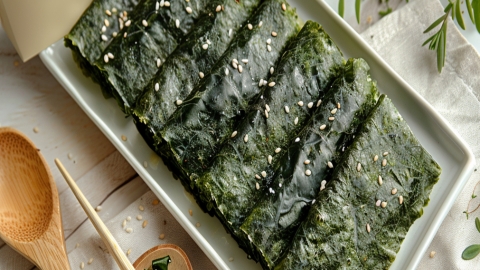Is seaweed a high-iodine food?
Generally speaking, seaweed is a high-iodine food. The detailed explanation is as follows:

Seaweed is high in iodine. Seaweed is processed from algae, which grows in seawater and can absorb and accumulate large amounts of iodine from the seawater. Therefore, the iodine content in seaweed is significantly higher than in most everyday foods. The iodine content in every 100 grams of seaweed can reach a high level, making it an efficient source of iodine for individuals needing to supplement their iodine intake. However, precisely because of this, seaweed is considered a typical high-iodine food.
When consuming seaweed, it is important to control the amount ingested, avoiding long-term and excessive consumption to prevent excessive iodine intake, which may affect thyroid function. Patients with thyroid diseases, such as those suffering from hyperthyroidism, should consume seaweed cautiously under a doctor's guidance to avoid worsening their condition. When purchasing seaweed products, choose reputable brands to ensure product quality, and check the production date and expiration date to avoid consuming expired products.






